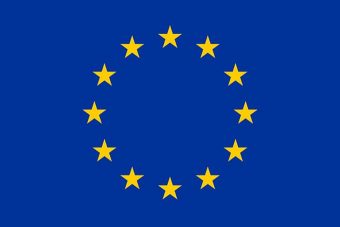
The European Union is on track to meet its renewable energy, energy efficiency, and greenhouse gas emission targets for 2020 following a ‘year of delivery’ across the renewables sector, according to a wide-ranging new report from the European Commission.
The Second State of the Energy Union report details how the bloc has already beaten its energy consumption and greenhouse gas emission targets for 2020 and is on track to meet its goal of sourcing 20 per cent of energy from renewable sources by the end of decade, having passed the 16 per cent milestone in 2014.
The report also confirms the EU has consistently decoupled economic growth and emissions growth, having slashed emissions 22 per cent since 1990 even as GDP has grown 50 per cent.
“For the Energy Union, 2016 was the year of delivery,” the report states, detailing how the Energy Union Framework Strategy had now been translated into a new clean energy package and mobility strategy.
Maroš Šefčovič, Vice-President responsible for the Energy Union, said the focus now should be on making 2017 “the year of implementation”. “The Energy Union is about more than energy and climate alone; it is about accelerating the fundamental modernisation of Europe’s entire economy, making it low-carbon, energy and resource efficient, in a socially fair manner,” he said. “Now that a large part of the relevant legislative proposals are on the table, 2017 should be the year of implementation.”
Miguel Arias Cañete, Commissioner for Climate Action and Energy, said the bloc’s commitment to the clean energy transition would not be derailed, despite “current geopolitical uncertainties”.
“There is no alternative,” he said. “And the facts speak for themselves: renewable energy is now cost-competitive and sometimes cheaper than fossil fuels, employs over one million people in Europe, attracts more investments than many other sectors, and has reduced our fossil fuels imports bill by €16bn. Now, efforts will need to be sustained as Europe works with its partners to lead the global race to a more sustainable, competitive economy.”
The report estimates the EU sourced 16.4 per cent of its energy from renewables in 2015, with official projections renewables share should hit 21 per cent by 2020, exceeding the 20 per cent target.
It adds that there are considerable environmental and economic benefits arising from the bloc’s investment in renewables, including an estimated saving on fossil fuel imports of €16bn in 2015 and emissions savings of 436 million tonnes of carbon dioxide equivalent, equal to the national emissions of Italy.
The report also reveals that the European renewable energy sector boasted a turnover of around €144bn in 2014, employing more than one million people.
However, the update notes that for the 2020 renewables goal to be met “Member States will have to keep up their efforts in order to reach their national goals”, and acknowledges total investment in renewables across the bloc has fallen by more than half since 2011 to €44bn.
A handful of countries are projected to narrowly miss their national renewables targets, including the Netherlands, Luxembourg, and the UK.
UK ministers have privately acknowledged in the past that slower than expected progress in delivering renewable heat and transport technologies meant the UK was on track to miss its 15 per cent target, with some experts fearing it could fall some way short of the goal. However, the EU report suggests significant progress in delivering renewable power capacity means the UK is projected to source 14.8 per cent of its energy from renewables in 2020, falling just shy of the 2015 target.
Dr. Nina Skorupska, chief executive of the Renewable Energy Association, said the government should now step up efforts to meet the targets for renewable heat and transport that it is projected to miss.
“While it appears that UK is on track to meet our power targets, we are seriously falling behind in the heat and transport sectors,” she warned. “The government should take immediate steps to remove the roadblocks to further renewable energy deployment.”
Specifically, she argued the government should raise the cap on crops used in the production of biofuels, re-think recent reforms to renewable heat schemes that have stymied biomass development, and provide a route to market for solar and onshore wind farms.
Meanwhile, Emmanuel Desplechin, secretary general of biofuel body ePURE, argued action is needed right across the bloc to accelerate efforts to meet the EU’s renewable transport fuel targets. “The European Commission’s renewable energy report card confirms that the EU is falling behind in its climate policies for transport,” he said. “Many Member States are nowhere near on track to meet their obligations for at least 10 per cent renewables in transport by 2020. One big reason for what the report calls ‘slow progress’ is that the Commission keeps downshifting on its policies on biofuels – which offer significant greenhouse gas savings. That policy instability has undermined Member States’ abilities to use renewables in transport.”
The update also received a luke warm welcome from Wendel Trio, director of campaign group CAN Europe, who argued the encouraging expansion in clean energy across the bloc had to be set against the more ambitious goals set out in the Paris Agreement.
“Current progress does not mean that the EU can rest on its laurels, because it has set the bar extremely low,” he said. “Being on track to reach our current weak targets gives one additional argument that the EU can and must do more to scale up climate ambition. Aligning the energy transition with the Paris Agreement will require more ambitious climate and energy targets, strong legislation, and additional measures such as deadlines for phasing out fossil fuels.”
Source: businessgreen.com


